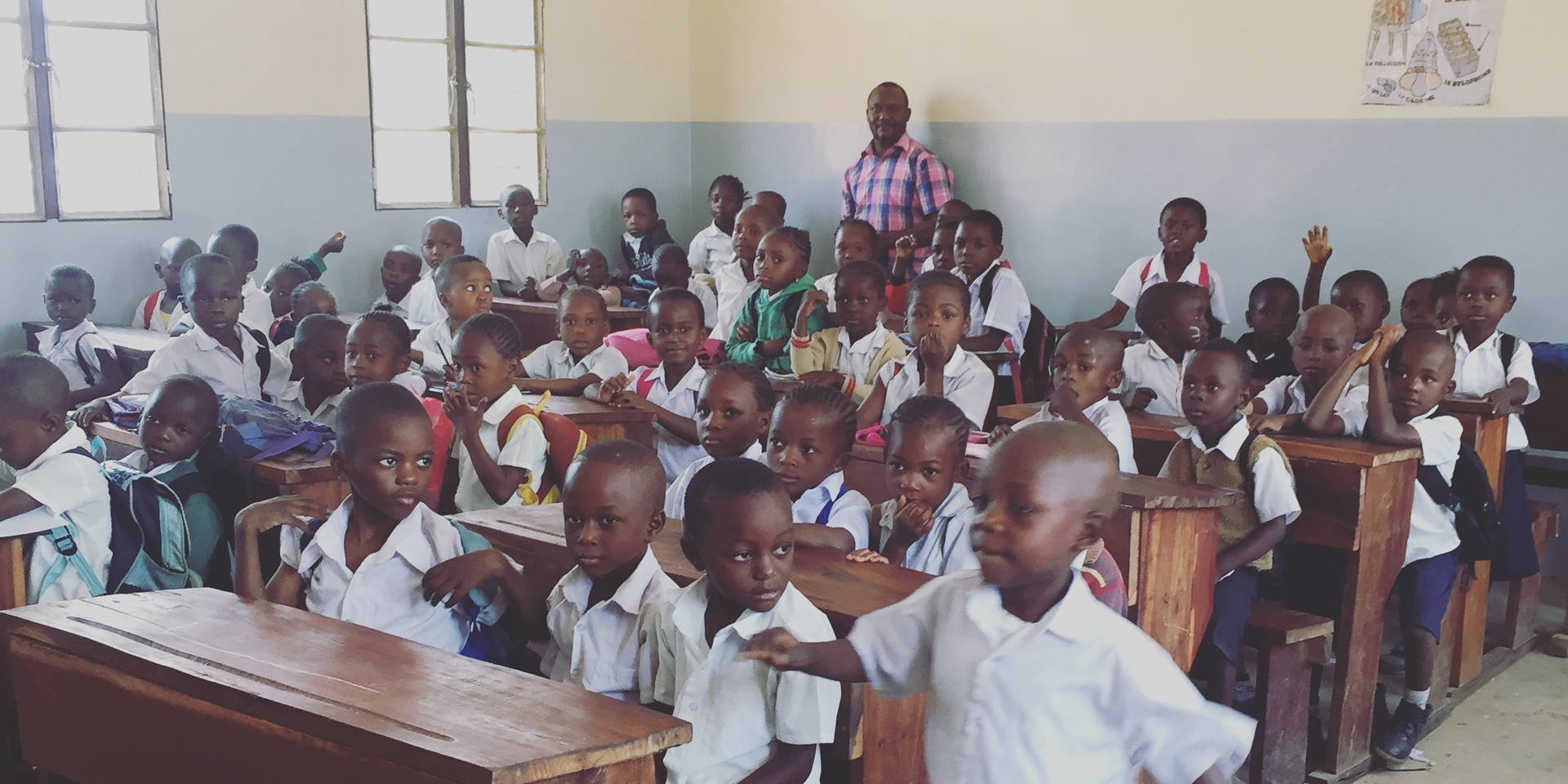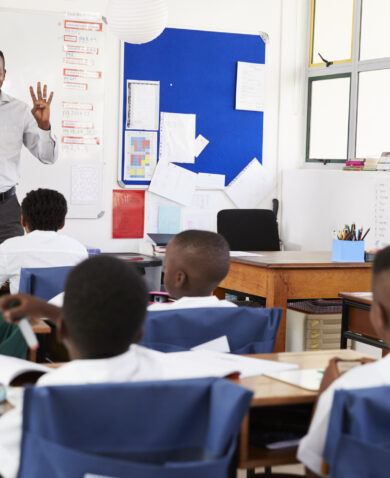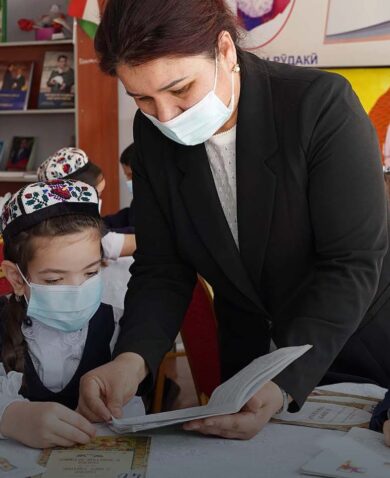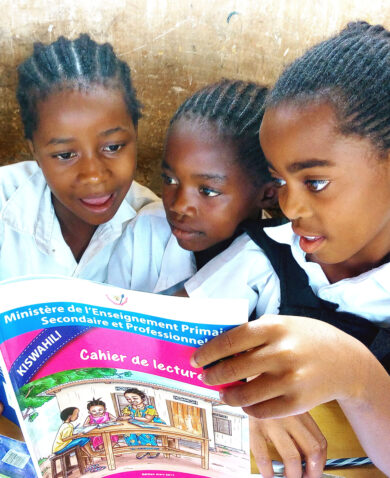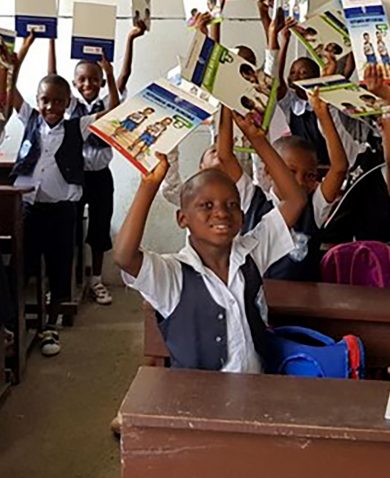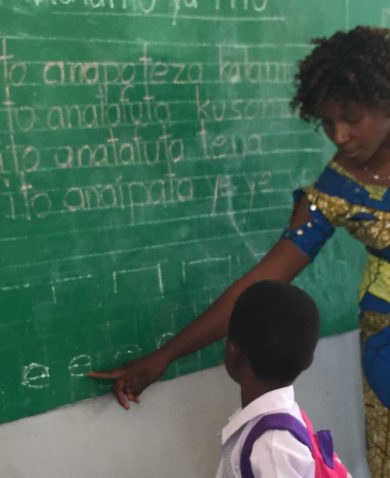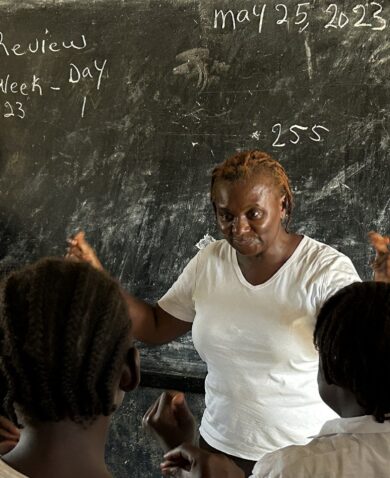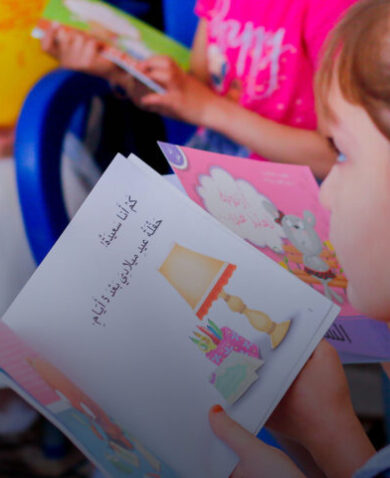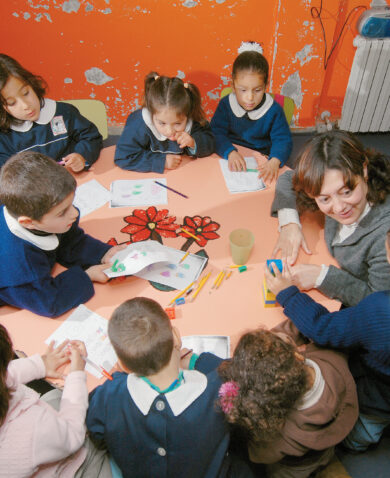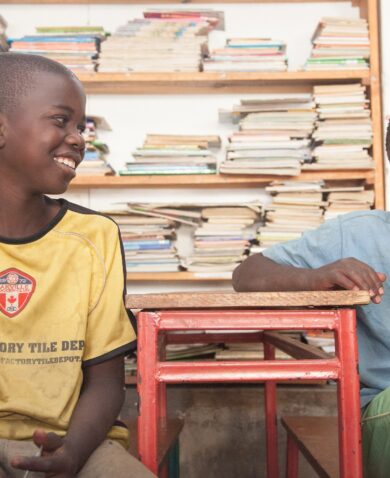Reinvigorating the Learning Process and Getting Kids Reading
Once children are safely in school, the real challenge begins. Not only do students need the tools and skills to learn, they also need supportive teachers, community members, and peers to inspire them and nurture their love of reading. Drawing on the latest regional and international best practices, ACCELERE! is working with the Congolese Ministry of Education to develop a customized instructional model and curricula for early-grade reading in local languages, with new student materials per grade; daily lesson plans; and in-service training, coaching, and school-based professional development for teachers. Scripted daily lessons will support teachers to follow a consistent instructional pattern to clearly explain new skills, model them, guide students in practicing their new skills, and support them to practice on their own. To produce books and other reading texts that resonate with students, the project is working with the ministry to organize writing workshops for local authors to write level-appropriate fiction and non-fiction texts that feature local folk tales and stories to promote gender equality, conflict management, peace education, nutrition, sanitation, and hygiene.
To boost children’s ability and love for reading even further, ACCELERE! will work with community mobilizers to engage parents and share things they can do to build their children’s foundation for reading, such as telling a story or talking through the steps in an everyday process (like cooking a meal) and describing where each ingredient comes from. These mobilizers also will support schools to lead activities that support literacy, such as organizing monthly story reading sessions and pairing older and younger children as “reading buddies.”
Evaluating Progress and Scaling-Up Successes
In a country as large as the DRC, scale is key. To ensure that positive impact at the school level is expanded nationally, ACCELERE! will help teachers and other key actors across the target sub-provinces conduct rolling assessments to monitor student performance, identify successful teaching and community engagement, troubleshoot challenges, and feed this learning back into national-level curricula, training, and policy. The project will also pilot the use of technology-based tools and techniques, such as using mobile phones and tablets to give teachers access to MP3s on topics to discuss in teacher learning circles. ACCELERE! will also help pilot the use of phones to send SMS tips and reminders to teachers, who in turn can call one another to discuss instructional issues and share lessons learned. Community members can also use these phones to report on improvements or issues they see at their schools. Through private-public partnerships, such innovations could lead to sustainable, cost-effective platforms for revolutionizing teacher professional development in the DRC and channeling feedback for ongoing improvement of learning at the school level.
Using the assessment data and other information from schools, ACCELERE! will collaborate with the government and civil society to report on the status of education in project schools and develop educational policies that support and expand successful educational methods across the country. In the past, the government has lacked key data to inform policy and struggled to organize broad policy consultations. Local actors have also lacked information on which to assess how their schools are doing and whether their children are learning or to identify effective channels for having their voices heard and heeded. To address these challenges, ACCELERE! will help increase the flow of information and ways to keep education administrators, teachers, and community members mutually accountable for children’s success in school.

